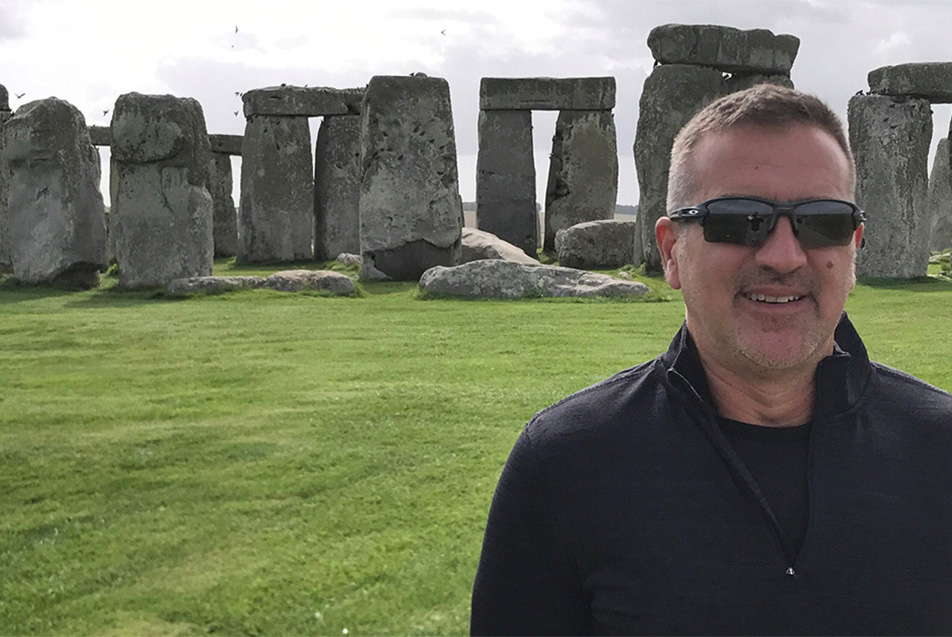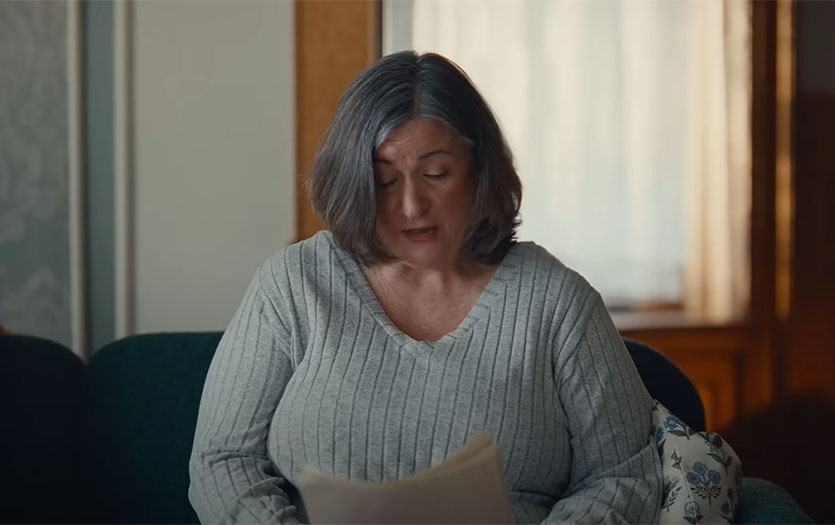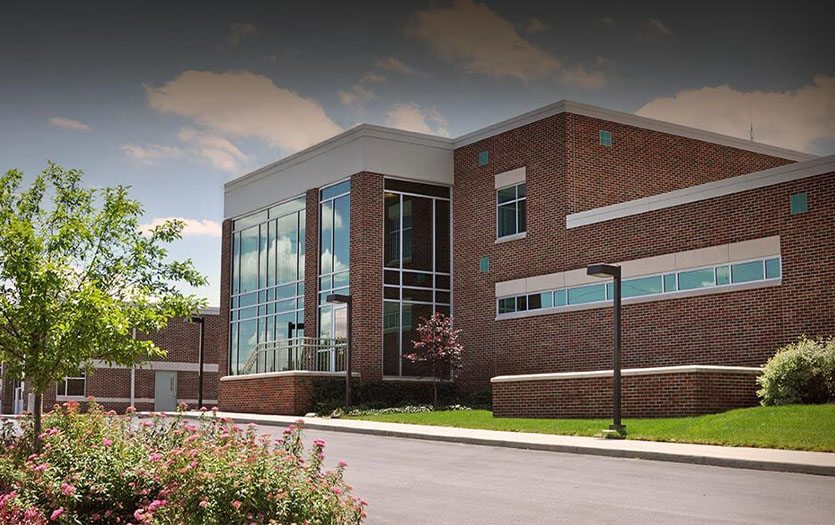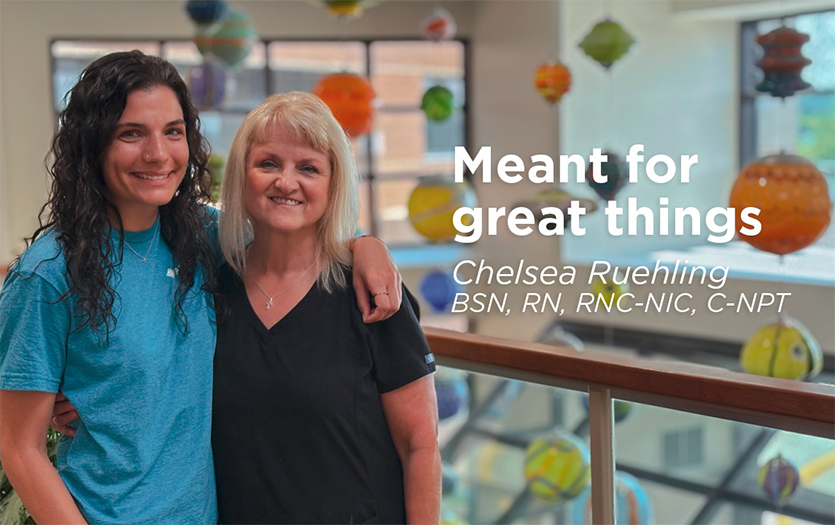They say great leaders aren’t born, they’re made. At Parkview, we have a tremendous example of this theory in Ron Double, our Chief Information Officer. Since 1989, Ron has been climbing the ranks of our healthcare system, taking on every responsibility and opportunity placed before him, and constantly keeping his eyes toward the future of information technology as it relates to patient care.
Driven by a desire to foster strong relationships and deliver exceptional work, Ron has earned the respect of his comrades and thousands of team members connected through the intricate labyrinth of information sharing systems. With a perfect balance of mechanics and congeniality, he is one of the inventive, wholehearted, persevering People of Parkview
Name: Ron Double
Title: Chief Information Officer
Describe your education and career journey:
AAS Computer Technology – Purdue University, 1985
B.S. Computer Science – Purdue University, 1992
Master Business Administration – Indiana University, 1999
I started in IT for manufacturing in a small company in Bluffton in 1983. I had the opportunity at 20 years old to run their small “data processing” department of 3 people, including myself. I supported plants in three states: Indiana, Michigan and Nebraska. I continued with various manufacturing companies until I joined Parkview in 1989.
Initially, I was a programmer/analyst supporting Revenue Cycle. Healthcare was so far behind other industries, and I was feeling uncertain with my move. Then, I had the opportunity to take a role in our Information Services Client Services department implementing and supporting PCs, PC software, training end-users and some network user management functions. I started working with the caregivers and found this was worthwhile work. It changed my whole perspective on healthcare and what we could do with technology. I realized the impact on our patients.
In 1991, I became our datacenter supervisor while retaining some of my previous responsibilities. Then, in 1994, I was given the job of IS service center manager and developed Parkview’s first full-time help desk. At the same time, I took over responsibility for the telecommunications operators and the physicians’ answering service which supported approximately 600 community physicians.

In 1998, I assumed the role of Communications Manager, and transitioned to the IS Director of Technology Services in 2001. In this role, I was responsible for the datacenters, data network, voice network, servers, desktops and other technology used throughout Parkview. I continued in this role until applying for and being selected as Chief Information Officer in 2008. Since then, it’s been an exciting, challenging, and rewarding journey with many opportunities, many successes, and a few failures. But, we’re always focused on moving Parkview forward, achieving our growth goals, and most importantly, positively impacting patient outcomes.
What have been some of the highlights of your career at Parkview?
I have had the opportunity to participate in more initiatives during my time at Parkview than most CIOs get to participate in throughout their career! I worked on a complete phone system replacement, replacement of two datacenters, building of all new Parkview facilities (Parkview Huntington Hospital, Parkview Whitley Hospital, Parkview Noble Hospital, Parkview LaGrange Hospital, Parkview Regional Medication Center), implementation of two electronic medical records systems (IDX Carecast and Epic), and so much more.
What inspired you to pursue this profession?
My plan was to become and electrical engineer. After just a few courses, I knew it wasn’t for me. But, I had an interest in computers from taking the only computer class offered at my high school, so I took switched majors and completed the journey. Then, in the mid-1990s, I realized that in order to grow, I needed to improve my business knowledge. That’s when I pursued my MBA through IU.
At Parkview, my philosophy has been to take any opportunity that presents itself. I came in as a programmer/analyst with a little network technology experience, but as the opportunity opened up to support our technology environment, I took it. I knew very little about tele-communications, but when the opportunity presented itself, I took it. Then, when I got the opportunity to lead our technology team, I took it. All of these opportunities, paired with the relationships that I built with the IS team, our clinical staff, medical staff and leaders, prepared me for the CIO role. My advice to everyone is be curious and constantly look for how you can grow. And never turn down an opportunity if you have interest.

What is a typical day like for you?
The great thing about my job is every day is different. But on most days, I like to start my day with my direct reports reviewing what has occurred in the past 24 hours and what we have planned for the next 24 hours. This keeps me grounded and connected to the team.
I try to take time every day to find ways that we can improve. This can be self-improvement, department improvement, or organization-wide. It’s important to always be pushing forward.
I spend much of my day in meetings discussing opportunities and helping to drive direction. I ask a lot of questions because that’s how I learn. I also try to take as much time as possible to build and maintain relationships with leaders, physicians, other caregivers, my direct reports, and the team actually doing the work. Relationships are an important part of my success. And rounding is so important to really understanding what is happening.
I also work closely with vendors to make sure they are delivering what is needed to Parkview from a software, hardware or services standpoint. And, like everyone else, I read and respond to way too many e-mail messages.
What are some of the unique challenges of overseeing the technology that supports an entire health care system?
I think the biggest challenge is keeping up with the growth of Parkview. As Parkview grows, the need for technology is growing exponentially. In 1991, Parkview had one major facility, less than 100 PCs, and about 900 dumb terminals tied to a mainframe. Today, we are all over northeast Indiana and northwest Ohio with approximately 13,000 workstations, 1500 file servers, and a very complex data network – both wired and wireless.
The next challenge is the exponential rate of change in technology. Technology is changing so quickly that we are constantly needing to learn new things and then figure out how to leverage those new technologies for healthcare.
Information security has become a big part of the job. Every day the threat grows and becomes more sophisticated. So, it is a constant challenge and requires technology, education and diligence.
Finally, because healthcare lagged behind in technology and the application of that technology, we are trying to catch up overnight. The needs and desires for new technology solutions far exceed the resources available to implement and support those technologies, so it’s a prioritization and balancing act.
The most rewarding?
Worthwhile work! Knowing that the technology that we deploy is saving lives. Even though we don’t give direct patient care, I know that what we do is providing better outcomes and saving lives every day.
And, of course, the relationships.

What excites you about the future of technology?
It’s just cool! There is so much that excites me. I’ve spent much of my career working to collect data, now, we are using that data through business intelligence, analytics, etc. to make a difference. We are now beginning to be able to predict conditions, diseases and outcomes so we can intervene earlier. Soon, using machine learning and artificial intelligence, we will be able to analyze complex data so effectively that we can personalize wellness, treatment plans, etc. Technology is advancing and I believe soon we will be able to intervene and stop many diseases from occurring.
And with new low-cost technology, we will all be able to use technology to help identify, diagnose and treat complex medical conditions from our homes that would have taken months or years to identify and treat in hospitals or clinics with high cost equipment.
Why is technology so vital to a health care system?
Technology allows us to diagnose, treat and document care. It also allows us to gather the data and analyze it to improve outcomes and save lives. That’s why we are here. The technology we deploy saves lives.
This time of year, a lot of people are thinking about ways to give back. What are some ways you like to spread joy?
First and foremost, I have been blessed in more ways than I can even comprehend, so I believe it is important to give back. At the end of the year, I try to identify organizations that I can share my “treasure” with who are making a positive difference in our world. It’s important for us to share our blessings with others.
I also believe it’s important to thank those who have given me so much. I will spend much of the holiday season with family and friends just gathering together and celebrating each other and our time together.
What are some of your most treasured holiday traditions?
Each year we try to attend Christmas events like the Fort Wayne Ballet Nutcracker and Philharmonic Pops. I just really enjoy the decorations, the music and the gatherings.
We often go to Georgia to spend our holidays with my partner Dave’s parents, brothers, and other family members. This year, we are staying home, so we will spend a quiet Christmas with our adult children (24 and 17) celebrating our family and the blessings we’ve been given. Then there’s always the family Monopoly game on Christmas afternoon.

What is your greatest passion outside of work?
We love to travel every opportunity we get. There is so much in the world to see and so many different cultures. I also like almost any water activity – boating, tubing, skiing, paddle boarding, kayaking, white water rafting, scuba diving, snorkeling, etc.
If you could tell people to read one book in their lifetime, which would it be and why?
I don’t have a favorite book. There are so many great books for different reasons. One short book that carries a big message is “The Five People You Meet in Heaven”.
What would we find on your bucket list and what do you plan to check off next?
Most of my bucket list is places to visit, so hopefully soon I will be able to travel throughout Asia and do a road trip across the U.S.
What’s the best piece of advice you’ve ever received?
Decide early how you want to be remembered, it will guide your major life decisions.




